The 2010 U.S. Census recorded 32,633 black Americans with Harper as their last name. That represented 26% of the total of 124,461 entries.
This article tracks their numbers in the census since the Civil War. We also look at historic African American people named Harper.
We end with a review of early records of black military service in the United States.
After The Civil War
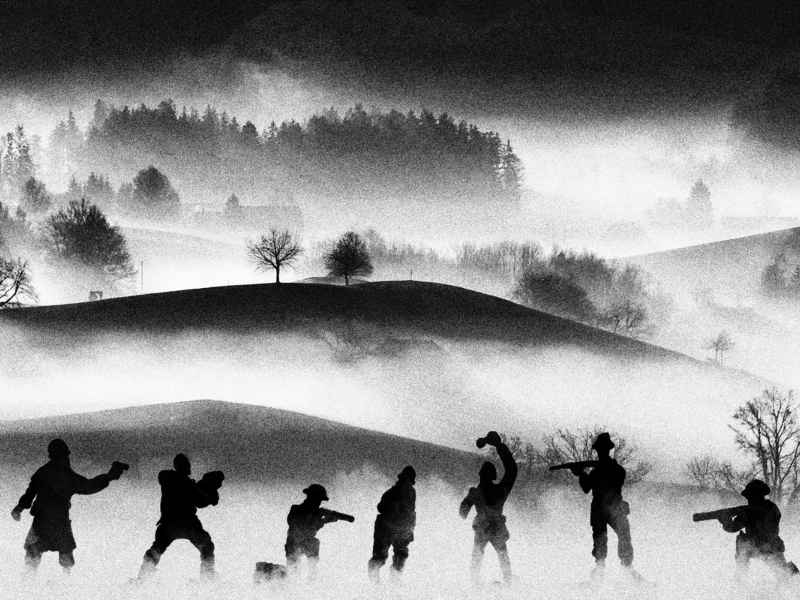
The 1870 census was the first survey after the Civil War and the Emancipation Proclamation. In 1850 and 1860, only free African Americans were recorded in the census. The many enslaved were omitted.
From 1870 onward, all black Americans were included.
3,493 people named Harper were recorded in the 1870 census as black and 641 as mixed.
There was a total of 21,273 people with the name.
Harper In The 1900 And 1940 Census
The mixed category was dropped from the census in 1900, so we just need to look at the black numbers this time.
The 1900 census recorded 8,474 people with the last name Harper as black within a total of 38,532 that year.
By the way, the mixed category returned in the 1910 and 1920 censuses. It was dropped again in 1930, but replaced with extra categories for colored and non-white in a way that seems confusing now.
This changed again in 1940 and we can simply focus on one black category.
The 1940 census recorded 12,779 people named Harper as black within a total of 65,899.
Historic Black Figures With The Harper Surname
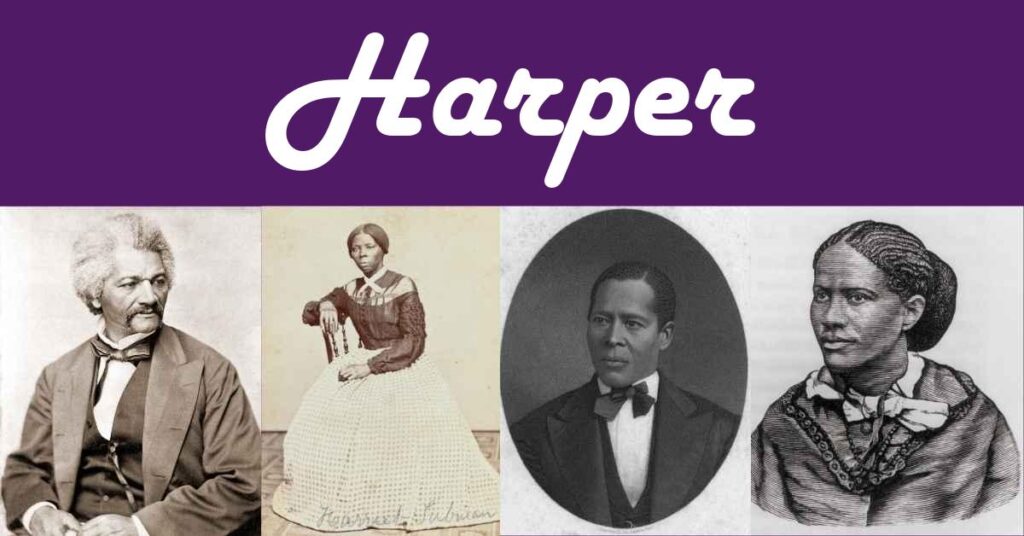
Here are some notable African Americans in history with Harper as their last name.
Frances Harper
- Born: 1825
- From: Baltimore, Maryland
- Died: 1911
Frances Ellen Watkins was born free in Maryland. She was a niece of William Watkins, the abolitionist. Frances worked in her teens for the owners of a bookshop, which gave her access to a wide range of books. She published her first book of poems in 1845 when she was twenty.
Frances went to live in the household of William Still in 1851. Still was a leading member of the Underground Railroad.
The Underground Railroad was a network of safe houses and travel routes organized by many church and community leaders, civil rights activists, and abolitionists. Thousands of enslaved people were helped to escape from the South.
Frances joined the Anti-Slavery Society and became an influential figure for the abolitionist cause through her writing and speeches. She was also a strong activist for women’s rights and suffrage.
She married Fenton Harper in 1860 and continued to publish under her married name. After the Civil War, she worked with the Freedmen’s Bureau. The Bureau was established after the Civil War to help newly freed African Americans.
Harper also co-founded the National Association of Colored Women in 1896.
Francis Ellen Harper’s literary work was mostly poetry. But she wrote the first published short story by an African American woman in 1859. Amongst her eighty poems, “Bury Me In A Free Land” is one of the most acclaimed.
I ask no monument, proud and high
to arrest the gaze of the passers-by;
all that my yearning spirit craves
is bury me not in a land of slaves.
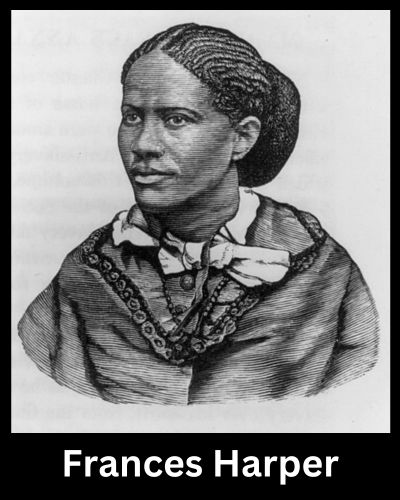
Early Black Poets
Here are some other notable African American poets who were born in the 19th century:
- Alice Dunbar Nelson (1875 – 1935)
- Eloise Bibb Thompson (1876 – 1928)
- Anne Bannister Spencer (1882 – 1975)
- Esther Popel Shaw (1896 – 1958)
Thelma Harper
- Born: 1940
- From: Brentwood, Tennessee
- Died: 2021
Thelma Claybrooks was one of eleven children in a family of sharecroppers in Davidson County. She married Paul Harper in her teens, he was her lifelong companion. Thelma Harper graduated from Tennessee State University in 1978.
She was elected to the Metropolitan Council of Nashville and Davidson County in 1983. She entered the Tennessee Senate in 1991, becoming the first black female senator in the state. Her service of thirty years makes her the longest-serving female Tennessee State senator.
Harper was highly influential. Her many legislative causes included protection for low-income students, the elderly, and at-risk infants. She also worked hard to bring economic benefits to the 19th District through job training and capital development.
Thelma Harper proposed and passed the legislation that renamed a section of Highway 41 as Rosa Parks Boulevard.
Harper In Black Military Records
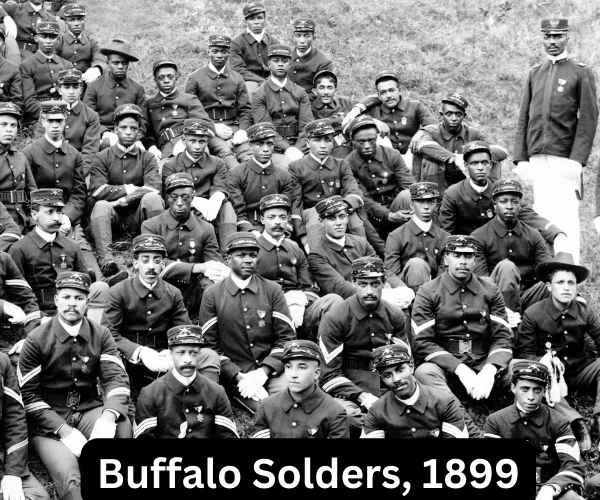
Military records are a rich resource of information for family history research. Here are examples of the Harper surname from different military services:
- Buffalo soldiers
- Black civil war sailors
- Tuskegee airmen
Buffalo Soldiers
Five regiments for black soldiers were formed during the Civil War. They were known as the Buffalo Soldiers.
Their records are part of the national archive of military monthly returns. The information includes the year and place of birth, where they enlisted, their occupation, and their height.
One of the earliest military entries for Harper was in July 1867. Henry Harper was a Private in the U.S. Tenth Cavalry. He was stationed in July 1867 at Fort Leavenworth, Kansas.
One of the later entries was in July 1914. Eddie Harper was a Private in the U.S. Ninth Cavalry.
If you are researching military ancestors, there is a free index of these records on Ancestry.com and FamilySearch.org.
You have to create an account on either website, but you do not need to pay for the Buffalo Soldiers archive.
Black Civil War Sailors
The National Parks Service has a free archive of African American sailors during the Civil War.
The information includes their age, height, rank, occupation, and where and when they enlisted. It also includes every ship that they served on.
You can search the database on the National Parks website.
Thomas Harper
One of the earliest records was for Thomas Harper from Rankin County, Mississippi. He enlisted in August 22 1864 at Cairo when he was aged 30.
The record shows that Thomas was assigned on July 1 1865 to the ship Selma.
His occupation before enlisting was as a Laborer. His naval rank was 1st Class Boy.
“1st Class Boy” was the rank given to young men who enlisted when they were under eighteen.
Tuskegee Airmen
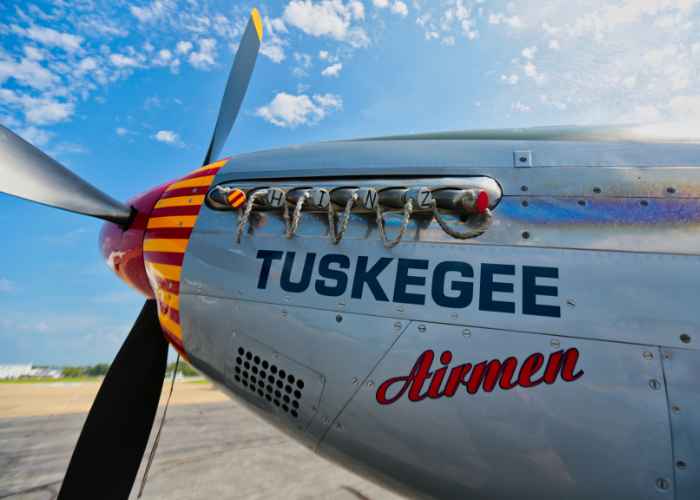
The Tuskegee Airmen were military personnel who served at the Tuskegee Army Airfield or related programs.
Nearly one thousand black pilots graduated from the Tuskegee Institute. They flew single-engine fighter planes or twin-engine bombers. 352 fought in combat.
Samuel Harper graduated from the Tuskegee Institute in January 1944. He qualified as a bomber pilot. Samuel was from Oliver Springs, Tennessee.